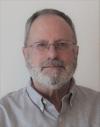RemPlex Summit Panel Discussions
| Jump to Panel Discussion 1 Community Revitalization | Nov. 9, 2021 |
Jump to Panel Discussion 2 Environmental Justice | Nov. 10, 2021 |
Jump to Panel Discussion 3 Stakeholder Engagement | Nov. 11, 2021 |
Panel Discussion 1
Community Revitalization
Tuesday, Nov. 9, 2021 | 9 AM - 10:30 AM *All sessions are in Pacific Standard Time, originating out of Washington State
This panel discussion will cover perspectives, experiences, and lessons learned regarding approaches to revitalizing communities adversely affected by large-scale environmental contamination or nuclear accident events. The panel discussion will identify strategies for successful economic, social, and community revitalization, and identify barriers or obstacles to recovery and potential strategies to overcome those barriers.
| Moderator(s) | |
 |
Kevin Kautzky, Pacific Northwest National Laboratory (PNNL) Kautzky advises the Risk and Environmental Analysis group on strategy and execution for PNNL's stakeholder engagement, environmental assessment and risk capabilities with key sponsors and collaborators. He helps identify and act on opportunities in the areas of environmental justice, consent-based siting, and other related areas. He is an experienced facilitator and coalition builder, adept at stakeholder engagement and consensus building. Each day he strives to be an ally and vocal champion for others. |
 |
Mark Triplett, PNNL Triplett has more than 30 years’ experience supporting remediation of the Department of Energy’s Hanford Site. Triplett applies decision analysis methods to support strategic and mission planning activities for the Hanford Site. Since 2013, Triplett has led PNNL’s broad support to decommissioning of the Fukushima Daiichi reactors. He is also supporting several Japanese organizations working to revitalize the communities affected by the nuclear accident in 2011. |
| Speaker(s) | |
 |
Seth Kirshenberg, Energy Communities Alliance (ECA)
|
 |
David Reeploeg, Tri-Cities Development Council and Hanford Communities & Hanford Communities
|
 |
Michael Houlemard, Consultant
|
Panel Discussion 2
Environmental Justice in the Context of Environmental Remediation
wednesday, Nov. 10, 2021 | 9 AM - 10:30 AM *All sessions are in Pacific Standard Time, originating out of Washington State
While Environmental Justice (EJ) issues are challenging and complex, at its core, EJ seeks to ensure that all persons and communities enjoy the same degree of protection from environmental risk or harm. The concept of EJ emerged in the United States in the early 1980s, but as recently as 2020, the Environmental Protection Agency (EPA) recognized the need for more progress toward reducing the environmental and health disparities for minority, low-income, and tribal populations. This panel discussion will highlight the unique experiences and perspectives of panelists who are engaging in efforts to identify, address, track, and/or measure progress toward achieving EJ in overburdened communities and in relationship to site remediation.
| Moderator(s) | |
 |
Kevin Kautzky, Pacific Northwest National Laboratory (PNNL) Kautzky advises the Risk and Environmental Analysis group on strategy and execution for PNNL's stakeholder engagement, environmental assessment and risk capabilities with key sponsors and collaborators. He helps identify and act on opportunities in the areas of environmental justice, consent-based siting, and other related areas. He is an experienced facilitator and coalition builder, adept at stakeholder engagement and consensus building. Each day he strives to be an ally and vocal champion for others. |
 |
Karen P. Smith, PNNL Smith is an advisor at PNNL. Prior to her joining in 2020, she worked at Argonne National Laboratory for 30 years as an environmental scientist. Her work focuses on energy and environmental policy development supported by integrated impact assessment, stakeholder engagement, and collaborative decision-making. Karen serves on the steering committee of IAEA's Network on Environmental Management and Remediation, providing input on ways to promote capacity development in IAEA member states related to environmental remediation |
| Speaker(s) | |
 |
Nicole Nelson-Jean, Department of Energy (DOE), Office of Environmental Management (EM) EM’s Progress under the Justice40 InitiativeAs associate principal deputy assistant secretary for DOE-EM Field Operations, Nelson-Jean has the overriding responsibility to support the 16 EM field sites. Throughout the nation, these sites are working to clean up and safely disposition large volumes of nuclear waste, safeguard nuclear materials, deactivate and decommission several thousand radiologically and chemically contaminated facilities, and remediate surface and groundwater contamination. Nelson-Jean is also responsible for leading efforts in EM related to the Biden Administration’s Justice40 Initiative. Prior to this position, Nelson-Jean served as the manager of the National Nuclear Security Administration Savannah River Field Office providing oversight for management, nonproliferation, and national security missions for the site. Nelson-Jean has a bachelor’s degree in political science from Grambling State University, a master’s degree in liberal arts from St. John’s College, and a master’s degree in strategic security studies from National Defense University. |
 |
Larry Douchand, Environmental Protection Agency (EPA), Office of Land and Emergency Management EPA Directions Related to EJ and Superfund ActionsAs director for EPA's Office of Land and Emergency Management's Superfund office, Bouchard oversees EPA’s national implementation of remedial cleanups under the Comprehensive Environmental Response, Compensation and Liability Act. Prior to coming to EPA, Douchand served (2006 – 2021) as the assistant commander of Environmental programs for the Naval Facilities Engineering Systems Command (NAVFAC). In this capacity, he was responsible for the execution of a full spectrum of environmental products and services to Navy and Marine Corps installations worldwide. He was responsible for leading the NAVFAC Environmental Community of Practice and was the Navy’s senior ranking environmental engineer. Prior to serving as assistant commander of Environmental programs, Douchand served in several other NAVFAC positions, including Supervisory Base Closure manager at NAVFAC’s Southwest Division. He has also held positions at the Army Corps of Engineers. Before federal service, he worked for private industry in environmental consulting and taught math and science in an Oakland, CA, public school district. Douchand holds an master's in environmental management from the University of San Francisco, and a bachelor's in nuclear engineering from the University of California at Santa Barbara. He is a registered professional engineer in the state of Maryland. |
 |
Amy Fitzgerald, City of Oak Ridge, Tennessee Environmental Justice Considerations in Superfund CommunitiesAmy Snyder Fitzgerald serves as a senior manager for the City of Oak Ridge, Tennessee. As the Government Affairs and Information Services director, she manages the City's Information Services department, which includes intergovernmental and public relations and overseeing the city's information technology services. She directs the development and implementation of the City's state legislative agenda and supports the city's review of state and federal policies that may impact Oak Ridge. She serves as one of Oak Ridge's board members to the Washington, D.C.-based Energy Communities Alliance and is a member of the DOE Environmental Management Advisory Board. Fitzgerald has held research positions at the University of Texas's Energy, Environment and Resources Center and the Vanderbilt Institute for Public Policy Studies and is the author of several book chapters and peer-reviewed articles. She is the recipient of a National Science Foundation post-doctoral fellowship, and has served on the faculty of the Pennsylvania State University, teaching courses in public management, research methods, and environmental policy. Fitzgerald is the recipient of the International City/County Management Association's 2019 Program Excellence Award for "Securing the Future of the American Museum of Science and Energy in Oak Ridge, Tennessee." Fitzgerald holds a bachelor's degree from Vanderbilt University, and a master's degree in public administration and a Ph.D. in political science, both from the University of Tennessee-Knoxville. |
 |
David M. Anderson, PNNL Best Practices and Emerging Methods for Environmental Justice AssessmentsAnderson is PNNL’s senior subject matter expert in environmental justice assessments. He has conducted over 19 separate environmental justice assessments for new or relicensed nuclear power plants and several additional such assessments for DOE projects around the complex. In addition, he has developed agency environmental justice guidance for the Nuclear Regulatory Commission (NRC) and DOE. He has given expert testimony on environmental justice matters before the NRC. He recently completed an 8-year term as PNNL’s Energy Economics team leader, managing a team of energy economists across a wide set of technical domains. |
Panel Discussion 3
Stakeholder Engagement
thursday, Nov. 11, 2021 | 9 AM - 10:30 AM *All sessions are in Pacific Standard Time, originating out of Washington State
Involving stakeholders in decision-making is a crucial part of successful environmental remediation. Stakeholders—such as site owners and regulators, workers, community groups, elected officials, scientific and technical experts, and indigenous populations—may represent diverse and sometimes conflicting interests. This panel discussion with on-the-ground expert practitioners in stakeholder participation will share best practices, lessons learned, and recommendations from remediation engagement efforts in the United States and other countries. Attendees will also hear about emerging trends in engagement approaches and what that may mean for those responsible for such activities.
| Moderator(s) | |
 |
Andrea McMakin, Communications Consultant For more than three decades, McMakin has provided award-winning communication expertise and consultation for businesses and nonprofits, including risk communication and public involvement training, research, and implementation. She has worked at three nuclear power plants. McMakin co-authored the book, Risk Communication: A Handbook for Communicating Environmental, Safety, and Health Risks, which has been used by practitioners, professors, and students in more than 20 countries. McMakin holds a bachelor’s degree in education from Eastern Washington University and a master’s degree in communications from Washington State University. |
 |
Rebecca Kreuzer, Pacific Northwest National Laboratory Kreuzer is a geochemist and geologist specializing in hydrogeological processes, groundwater geochemistry, and environmental tracers for site characterization, environmental assessments, remedial investigations/feasibility studies, and assessments of corrective measures. Kreuzer has supported numerous federal and state-regulated soil and groundwater investigations at coal-ash impoundments and landfills across the southeast United States. She received a bachelor’s degree in geological and earth sciences from SUNY Genesco and a Ph.D. in geochemistry and structural geology from the University of Rochester. |
| Speaker(s) | |
 |
Peter Booth, Hylton Environmental
Booth is a self-employed consultant working through the auspices of his own company, Hylton Environmental. For the past three decades, he has supported the assessment of contaminated land, setting of site end states, radioactive waste management, nuclear-related stakeholder engagement work, training, and peer review. His international work has included projects in Austria, Australia, Azerbaijan, Belgium, China, Ukraine, Unites States, Thailand, Malaysia, Japan, Estonia, Central Asia, Brazil, and Romania. He served as the chair of the International Atomic Energy Agency’s network on environmental management and remediation for eight years and still resides on the Steering Committee. Booth holds a bachelor's degree in geology and environment from Oxford Brookes University. |
 |
Ellen Kennedy, PNNL
Over the past two decades at PNNL, Kennedy has provided National Historic Preservation Act Section 106 and National Environmental Policy Act compliance expertise to federal clients including the Department of Energy (DOE) and the Nuclear Regulatory Commission. She has managed and led compliance activities for complex cleanup projects entailing cultural resource field assessments, National Register of Historic Places evaluations, development of agreement documents, and facilitation of tribal and stakeholder engagement. Kennedy has conducted oral history and ethnographic interviews with American Indian tribes and local community members and elicitation interviews with scientists and policy experts. She has a bachelor’s degree in anthropology and historic preservation from University of Mary Washington and a master’s degree in anthropology from Western Washington University. |
 |
Eric Roberts, EHI Consultants
Roberts is a program director with six years of federal services and business management experience in both the public and private sector, with key emphasis on infrastructure management, technology improvements, staff development, vendor management, and program management. Roberts manages the DOE Paducah, Kentucky Citizen Advisory Board and the Portsmouth, Ohio, Portsmouth Site Specific Advisory Board. At the national level, he facilitates the DOE Environmental Management Advisory Board Chairs' meetings and initiatives. Roberts holds a bachelor's of science degree in chemistry from Lambuth University. |